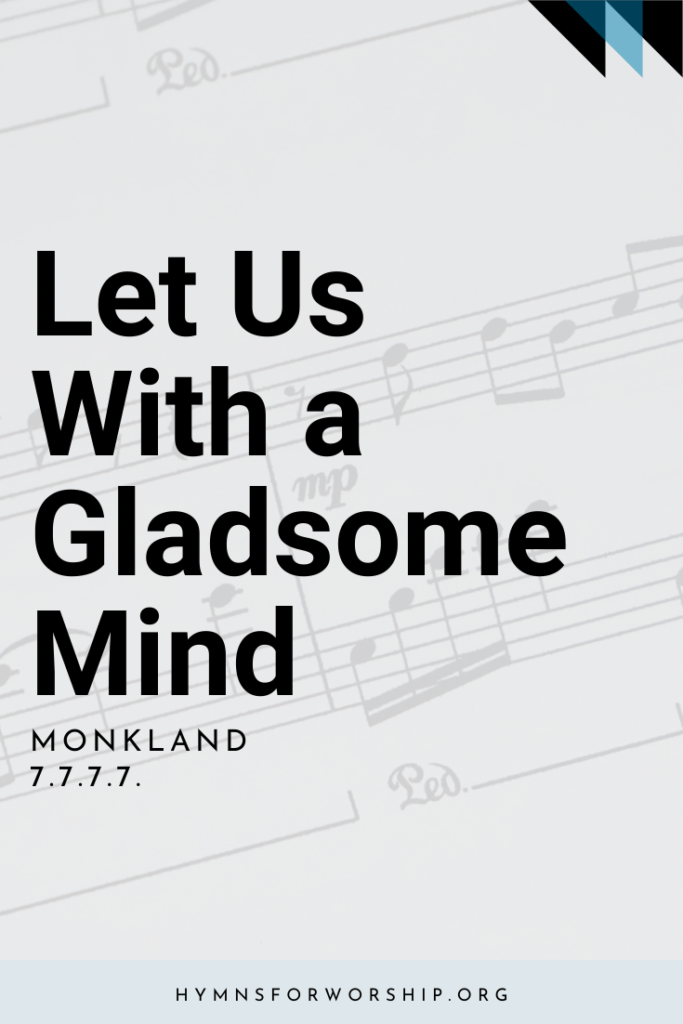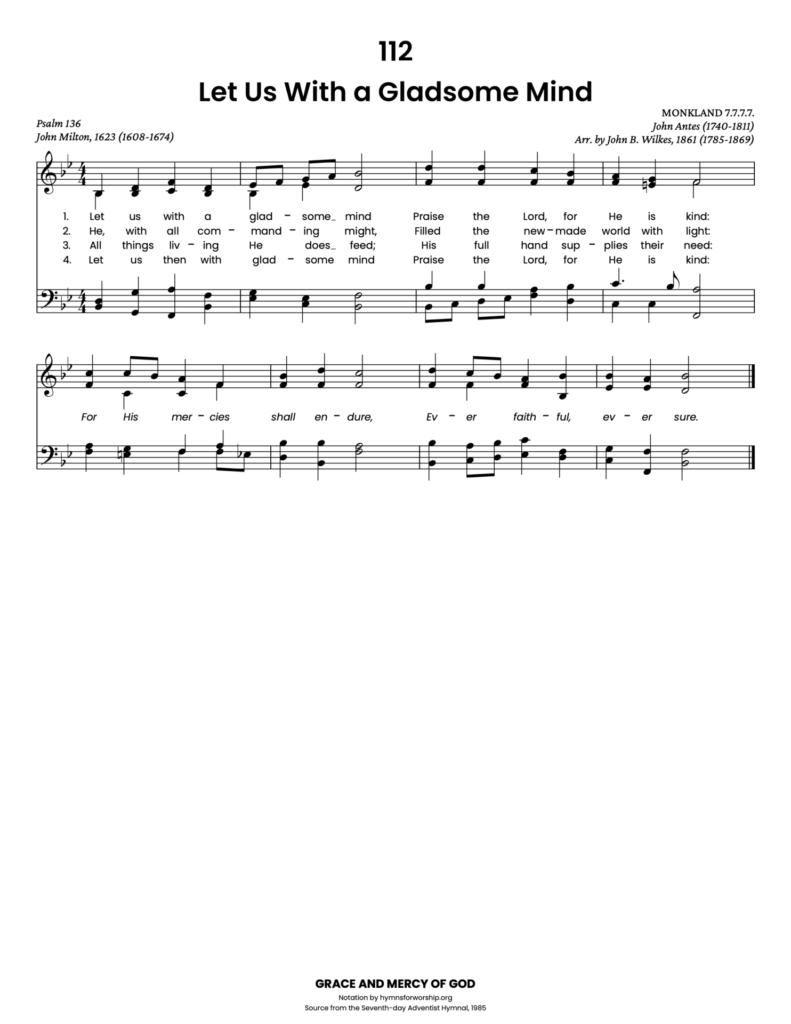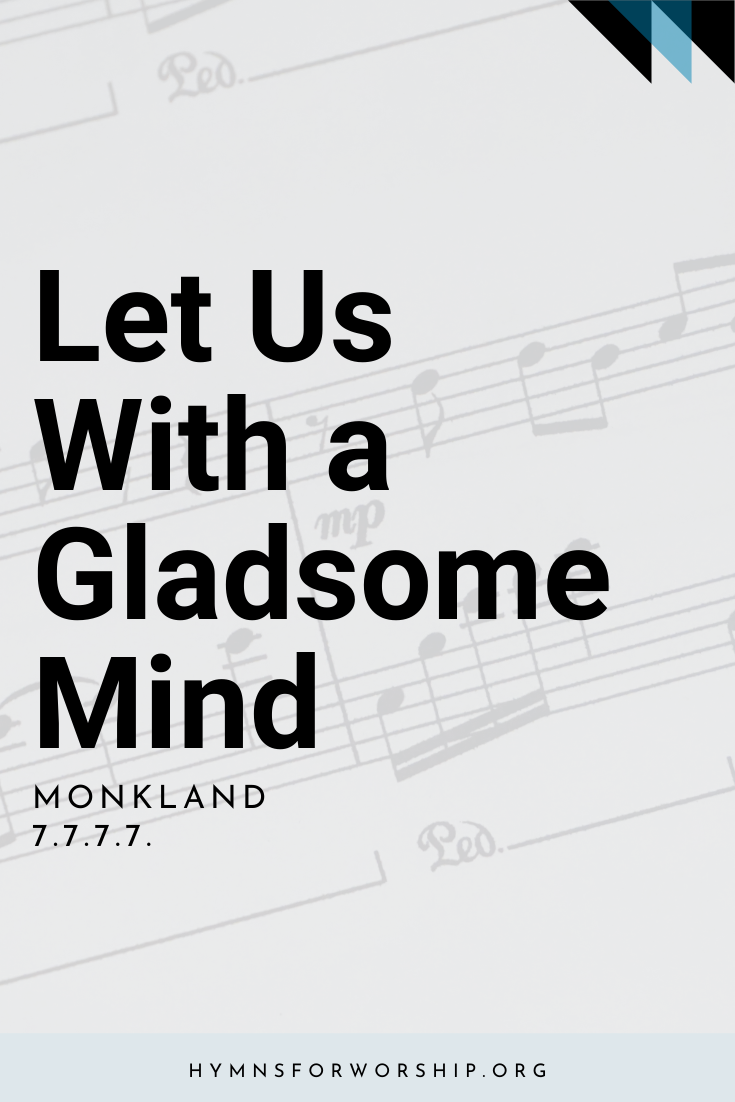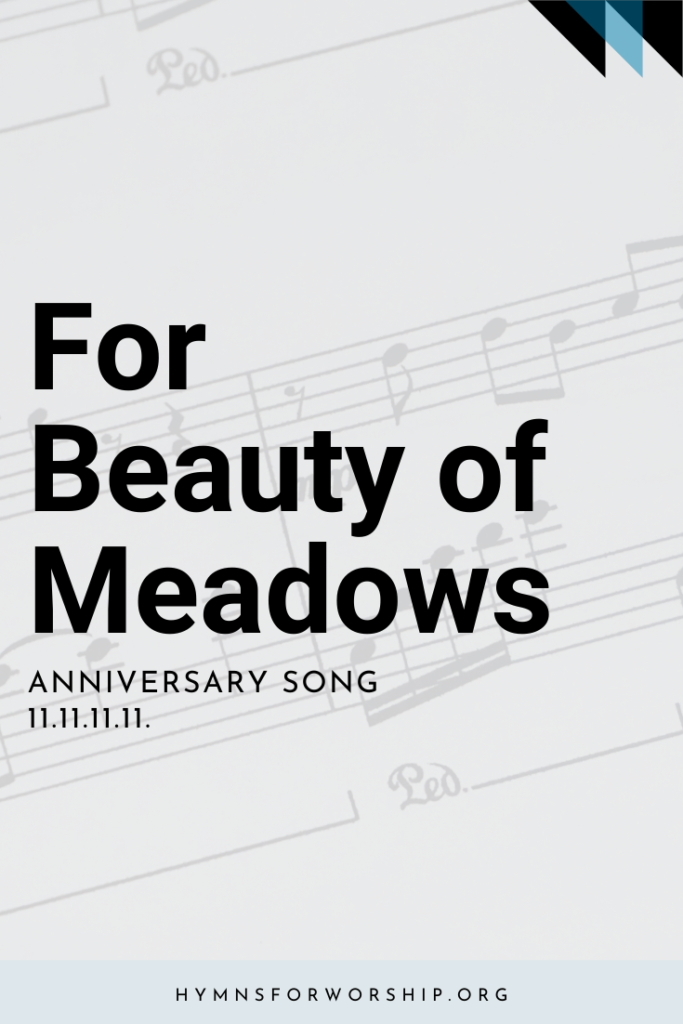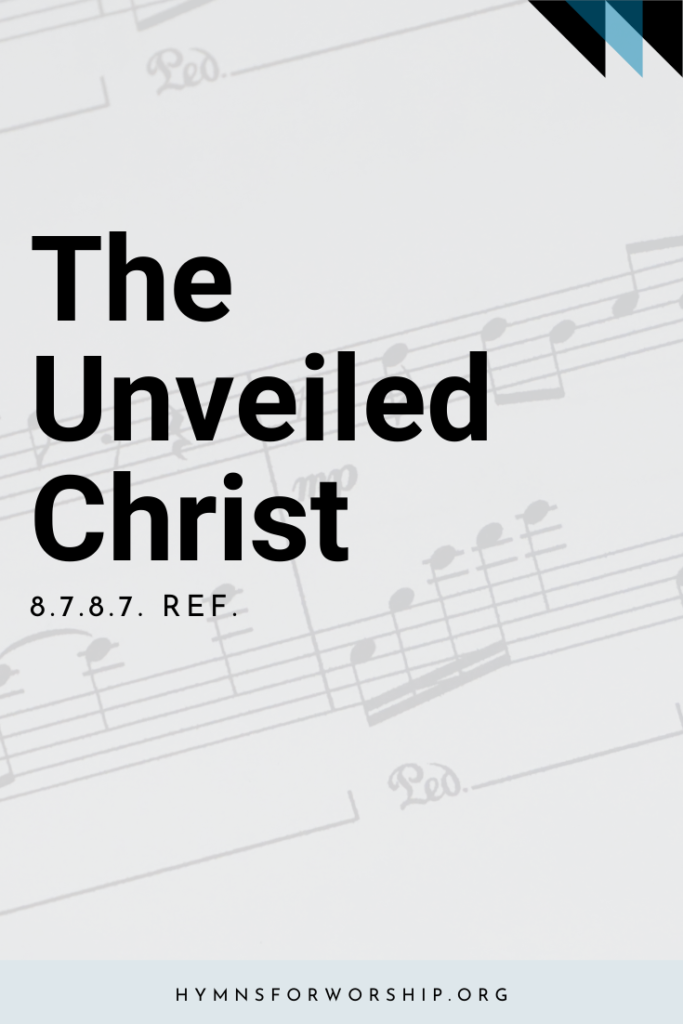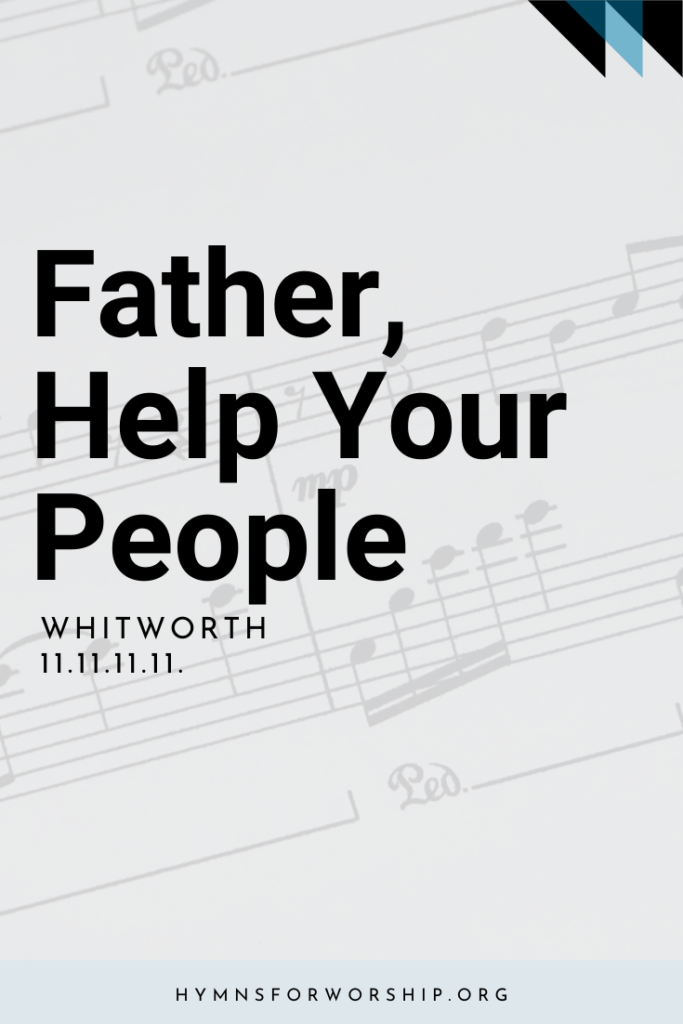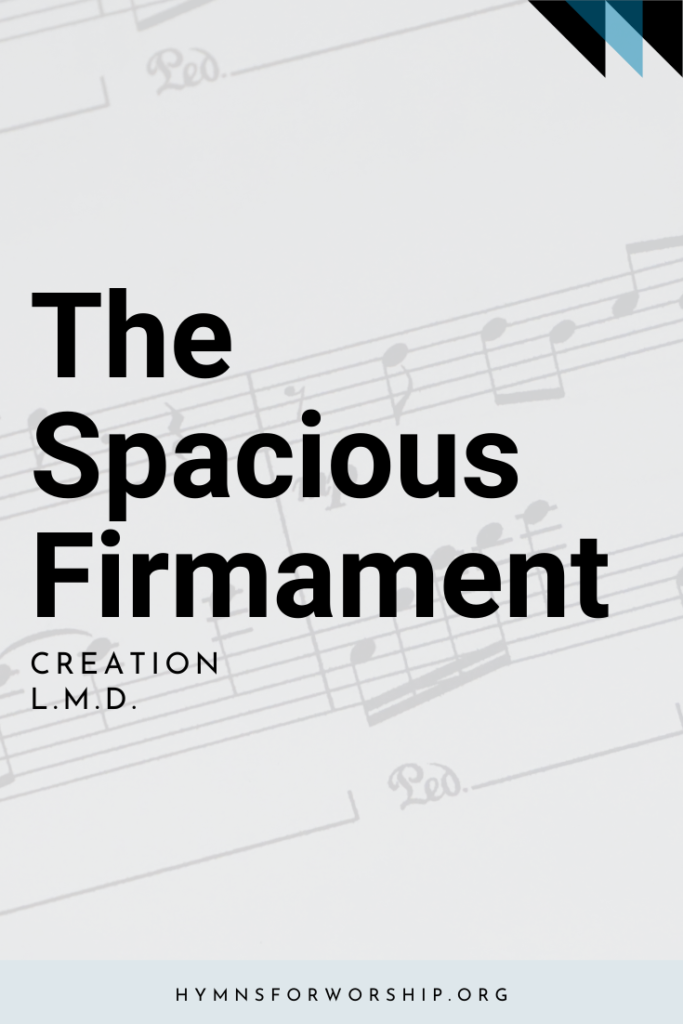John Milton was 15 years old, living at his father’s house in Bread Street, London, and attending St. Paul’s Cathedral School for boys, when he wrote this hymn in 1623. Making metrical versions of the psalms was, in this era, a normal exercise for a person who had a religious inclination. This is a paraphrase of Psalm 136, the original having 24 two-line stanzas, each one ending with the refrain “For His mercies aye endure, ever faithful, ever sure.” Verses 1, 7, 25, and 26 of the psalm are used: “O give thanks unto the Lord,” “To Him that made great lights,” “Who giveth food to all flesh,” “O give thanks unto the God of heaven.” The SDAH hymn uses Milton’s first, seventh, twenty-second, and a repetition of his last stanza, with a change of one word—then. The hymn first appeared in Poems of Mr. John Milton, Both English and Latin, 1645.
Milton was born on December 9, 1608, in London. He received his M.A. from Christ College, Cambridge, in 1632. Discouraged from entering the ministry because of conflict between church and state authorities, he chose to become a poet and spent the next six years at home studying and writing. Some of his later writing was very critical of the current political-religious scene. During this period he wrote Il Penseroso, L’Allegro, Comus, and Lycidas. Under Cromwell he had the position of secretary for foreign tongues in the Council of State. At age 44, in 1652, he became blind, but was able to continue his work until Cromwell stepped down in the Restoration of 1660. Milton escaped the gallows because of his fame as a poet.
The work for which he is best known, Paradise Lost, was published in 1667, and Paradise Regained in 1671. He wrote 19 metrical psalms that were not intended to be sung, but several have been included in hymnbooks. It is felt that his greatest contribution to hymnody was the influence he had on the hymns written by John and Charles Wesley. He died November 8, 1674.
MONKLAND was named for the village in Herefordshire, England ‘ where John Wilkes was the organist. He had found the tune in Hymn Tunes ofthe United Brethren, 1 824, a Moravian hymnal that had been edited by John
Lees, organist at Leonninster Moravian Church. Wilkes’s arrangcmcnt was used in IIY1nns Ancient and Modern, 1861. The tune was originally composed by Moravian John Antes and is found in A Collection of Hymn T’vnes Chiefly composed for Private Amusement by John Antes, c, 179().
John Antes was born March 24, 1740s in Frederick, licnnsylvania, into one of the most influential Moravian families of that time. A naturally gifted musician, he attended the boys’ school in Bethlchcm, He crafted a number of music instruments; one of his violins is in the Museum of the Moravian Historical Society at Nazareth, Pennsylvania, In 1764 he studied at the Moravian center at Herrnhut, Saxony; and after ordination in London, 1769, he spent 1 1 years as a missionary to Egypt. Here he suffered physical beatings at the order of the Turk, Osman Bey, who was trying to extort money from him. In 1783 he went to England and served the Moravian congregation at Fulneck, Yorkshire, for 25 years before retirement in 1808.
Antes is considered to be the first American-born composer of chamber music (his string trios are of exceptional quality), and the first missionary to go out from the American colonies. He composed anthems, chorales, hymn tunes, and beautiful solo songs. A most versatile man, he was also an inventor and watchmaker. He died in Bristol on December 17, 1811.
John Bernard Wilkes (1823-1869), considered by most hymnologists to be the arranger of the tune, was educated at the Royal Academy of Music, London. After serving ‘as organist at two churches, he went to Monkland in 1860, where Sir Henry W. Baker was the pastor. Baker was the chief editor of Hymns Ancient and Modern, so it was only natural that Wilkes would be called upon to make a musical contribution to that work. Wesley Milgate, author of Songs of the People of God, 1982, says that the John Wilkes who arranged this tune was not the John B. Wilkes above, but a less-noted organist who died in 1882.
